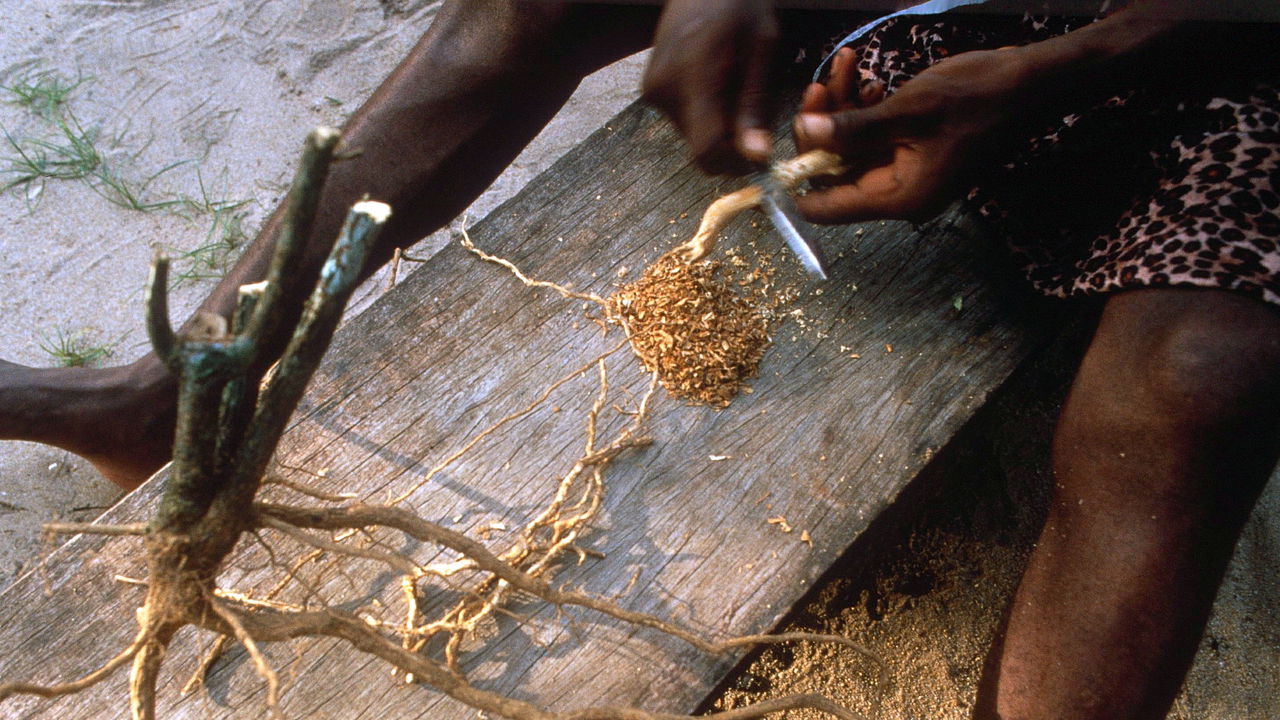In a recent Washington Post article, readers were introduced to Stephen Jones, a Navy Special Operations veteran, whose 30 years and 5 combat deployment have left him with a Traumatic Brain Injury (TBI) and Post Traumatic Stress Disorder (PTSD). “Jones’s life spiraled into blackouts, bouts of angry confusion and alcohol-fueled benders. Doctors diagnosed him with traumatic brain injuries inflicted by years of sea dives, parachute jumps, firefights and bomb blasts”.4 As part of a Stanford University study, he was introduced to the drug treatment, ibogaine, for PTSD.
“His treatment unfolded at a clinic in Mexico, where he sank into a dreamlike state, reliving forgotten memories: a lake-view as a child; a snake popping out of a pile of leaves; a young boy dead in Iraq, his head pierced by shrapnel from an enemy grenade. Ibogaine, he said, kicked his brain ‘into a higher gear’”.4 The study showed, and Jones reports that ibogaine noticeably improved his symptoms.
What is ibogaine?
A psychoactive substance found in plants of the Apocynacae family, ibogaine is indigenous to various part of Central Africa. Psychoactive substances change the function of the body’s nervous system and can result in changes of perception, mood, cognition, and behavior. It produces psychedelic effects in the user lasting anywhere from 4-6 hours depending on the dosage. Adverse effects can range from nausea and headaches to heart complications. The latter prevents the drug from being used in the medical treatment of opioid addiction and to help Traumatic Brain Injury (TBI) and Post-Traumatic Stress Disorder (PTSD).
While ibogaine has been around for over 100 years (first isolated in 1901), it wasn’t until the 1990s that doctors began clinical studies of the drug to treat opioid addiction. Most recently, studies that cite severe unfavorable effects, including death, have delayed progress toward its clinical use. While the drug is illegal in the United States, it is legal and/or unregulated in many other countries like Australia, Canada, and Mexico. However, American researchers have been attempting to replicate ibogaine’s compounds for use in treating various illnesses.
What kind of drug is ibogaine?
In America, ibogaine is classified as a Schedule I drug, the same class as heroin, peyote, and cannabis, that has not been recognized as having medical benefits. Researchers, however, are finding out that ibogaine may be game changer when it comes to treating some of the most difficult illnesses to handle. “A simple internet search for ibogaine therapy in Mexico will reveal plenty of options – mostly unregulated, with some existing only on social media. A few are fully accredited medical facilities, others do not include any medical personnel at all and most sit somewhere in between – a local doctor may have a relationship with a provider and clear patients for an ibogaine dose, but may not be present during the treatment”.4
Many former addicts participate in clinics to help other addicts get clean. Ibogaine treatments are said to be more affordable than traditional rehab stays and they offer another option for opioid users when traditional methods of treating addiction have failed.
Ibogaine and traumatic brain injury (TBI)
Traumatic brain injury (TBI) can result from trauma ranging from a simple blow to the head to a penetrating injury to the brain. In the United States, around 1.7 million people suffer a traumatic brain injury, with adolescents between ages 15 and 19 and adults aged 65 and older among the most likely to sustain a traumatic brain injury.
In addition, military veterans often have TBI from “head trauma and blast explosion.” Veterans suffer from PTSD, depression, and anxiety. There is also a high suicide rate for this population. Few treatment options “have been effective in diminishing the long-term effects of TBI”. This leaves many veterans with nowhere else to turn.9 Researchers from Stanford Medicine “have discovered that the plant-based psychoactive drug ibogaine, when combined with magnesium to protect the heart, safely and effectively reduces PTSD, anxiety and depression and improves functioning in veterans with TBI”.9
“‘No other drug has ever been able to alleviate the functional and neuropsychiatric symptoms of traumatic brain injury,’ said Nolan Williams, MD, an associate professor of psychiatry and behavioral sciences. ‘The results are dramatic, and we intend to study this compound further’”.9
Ibogaine and PTSD
PTSD can develop at any time in life, but the disorder occurs more frequently in young adults than in any other group. This may be because young adults are more frequently exposed to the types of traumas that can cause PTSD. The risk of developing PTSD is also higher than average in people who are poor, unmarried or socially isolated. This is perhaps because they have fewer supports and resources helping them to cope. Veterans also make up a large portion of PTSD diagnoses. “Up to 3% or so of all people in the United States have full-fledged PTSD in any given year. Up to 10% of women and 5% of men have PTSD at some point in their lifetime”.8
Current research indicates that ibogaine may benefit people with PTSD. “Many who have experienced the treatment have reported a stronger capacity to internalize and relive the events in the past. In doing so they are confronting repressed emotions associated with the trauma”.1 Ibogaine may help people suffering from PTSD to recognize how the events in their lives have contributed to their present situation. “It also suggested that ibogaine helps with the personality defects associated with trauma. It does this by distributing a balance among cerebral hemispheres in the brain. A clinical study done on special forces soldiers from 2015-2017 displayed a high reduction in symptoms relating to PTSD with the therapeutic treatment of ibogaine”.1
Ibogaine and opioid addiction
Over 46 million people (or 16.5 percent of the population aged 12 or older) meet the applicable DSM-5 criteria for having a substance use disorder in 2021, many of them opioid users. This percentage was highest among young adults aged 18 to 25 compared to youth and adults 26 and older. In 2021, 94% of people aged 12 or older with a substance use disorder did not receive any treatment. Some researchers argue that ibogaine could significantly help in the treatment of those addicted to opioids.
Current research studied ibogaine’s impact on the serotonin transporter (SERT), which is also the target of selective serotonin reuptake inhibitor (SSRI) drugs, including fluoxetine (Prozac) and other antidepressants. “A team of scientists from UC San Francisco and Yale and Duke Universities virtually screened 200 million molecular structures to find ones that blocked SERT in the same way as ibogaine”.2 Brian Shoicet, PhD, professor in the UCSF School of Pharmacy, states, “some people swear by Ibogaine for treating addiction, but it isn’t a very good drug. It has bad side effects, and it’s not approved for use in the U.S.”.2 Shoicet and his team created a compound that replicates Ibogaine’s “pharmacological effects [while]” still replicat[ing] its most desirable effects on behavior, at least in mice”.2
Next Steps
The future of ibogaine use, especially in the US, is precarious at best. For now, those seeking ibogaine treatment must travel to another country to have access to the drug. Many US researchers are attempting to study the effects of the drug, though they too must travel to other countries to do so. The powerful drug, while promising, is dangerous, as many have died from complications associated with ibogaine. Many others swear by the drug, and it has proven to be helpful in treating TBI, PTSD, and drug addiction. However, “‘even in therapeutic doses, ibogaine blocks a critical protein that can cause a delay in cardiac electrical signals,’ according to Mark Haigney, director of cardiology at the Uniformed Services University”.4
Haigney testified at a recent hearing where a commission in Kentucky considered allocating millions to research ibogaine”.4 He testified that to best use Ibogaine, heart screenings are essential. Haigney said that “he does not believe the FDA will approve the compound”.4 Currently, this seems to be the case, though through more research, scientists and doctors may find a way to make the drug or a compound of the drug readily available for use.


 Learn
Learn Get News
Get News Find Help
Find Help
 Share
Share
 Share
Share
 Share
Share
 Share
Share



